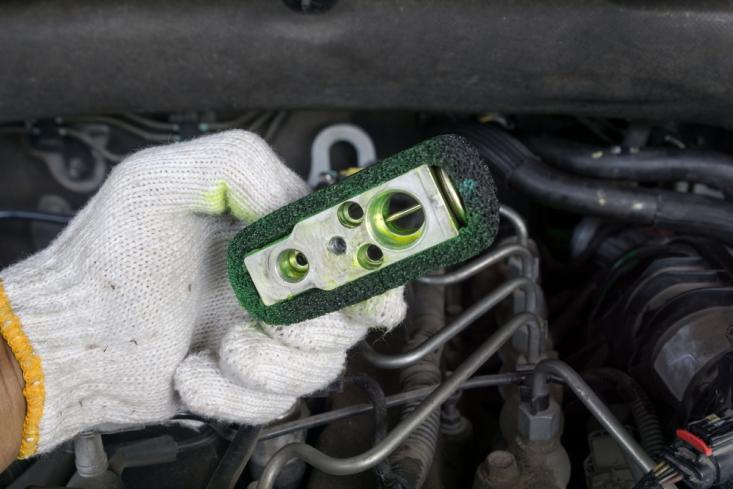
SIGNS OF A FAILING EXPANSION VALVE
keywordac expansion valve
Like any mechanical component, the AC expansion valve can malfunction or fail over time. Recognizing the symptoms of a failing expansion valve
can help you address the issue promptly and avoid more significant problems. Here are some common signs of a failing expansion valve:
Inconsistent Cooling
One of the primary indicators of a failing expansion valve is inconsistent cooling. You might notice that the AC system alternates between blowing
cold and warm air. This inconsistency is sometimes due to the expansion valve failing to regulate the refrigerant flow properly.
High Cabin Temperature
If your car’s interior remains uncomfortably warm despite having the AC on, it could be a sign that the expansion valve is not allowing enough
refrigerant into the evaporator. This results in insufficient cooling, leaving the cabin warmer than desired.
Frost on the AC Components
A malfunctioning expansion valve can cause frost or ice to form on the AC components, particularly around the evaporator or the valve itself.
This happens when the valve fails to regulate the refrigerant flow, leading to excessive cooling and frost buildup.
Hissing or Whistling Noises
Unusual noises, such as hissing or whistling, coming from the AC system can indicate a problem with the expansion valve. These sounds
typically occur when there is a pressure imbalance in the system, often caused by a faulty valve.
High-Pressure Readings
When the expansion valve fails, it can cause abnormal pressure readings in the AC system. If the valve is stuck open, it may result in low
pressure in the evaporator, while a stuck-closed valve can cause high pressure in the system. Both situations can lead to reduced cooling
efficiency and potential damage to other AC components.

2025-06-26 15:39:56






